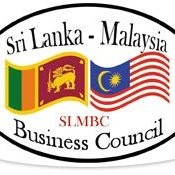Xinjiang to China is, perhaps, what Chechnya is to Russia. In no field is the comparison more striking than the oil and pipeline business. Both Chechnya and Xinjiang have oil. Moreover the two provinces are strategically located for oil pipelines. It is through a network of pipelines that wind across Chechnya that Russia and the countries in Central Asia and the Caspian region send their oil to Europe. Like Chechnya, Xinjiang is of strategic importance, for it is through this province that China intends to build pipelines that would bring home oil and natural gas from Central Asian countries like Turkmenistan, Uzbekistan and Kyrgyzstan.
Thus, China feels that the stability of Xinjiang is of paramount importance and is doing all it can to suppress the movement for independence in that restive province.
On this score, too, a comparison could be made between Chechnya and Xinjiang. Russia crushed the Chechen rebellion for independence with sheer force. It showed scant regard for concerns raised by the international human rights community. The first Chechen independence war in the 1990s took place before George W. Bush and his team changed the world order and confined human rights to the dustbin of history. Unable to win a clean war, Russia went into negotiations with the Chechen rebels. But when the second Chechen war started, Bush had buried human rights, the tombs of which are found in the Guantanamo Bay Gulag prison, Abu Ghraib in Iraq, the Baghram airbase in Afghanistan and scores of outsourced prisons in countries notorious for torture and human rights violations. Russia apparently took advantage of the situation and used brutal force to defeat the rebellion in Chechnya.
Though China has not gone to the extent Russia went to in the use of indiscriminate force, the manner in which the rebellion is being checked in Xinjiang has been a cause for concern in human rights circles.
Incidentally, both China and Russia have been resisting moves to internationalize human rights issues, insisting that such moves are an interference in the internal affairs of a country.
The ongoing unrest in Xinjiang province, home to some eight million Uighur Muslims, a Turkic-speaking minority in China, has claimed more than 150 lives, according to Beijing. Uighur sources, however, claim the number is much higher — more than 600 dead, most of them Uighurs — pronounced “wee-gers”. Though the history of Uighur separatism dates back to the Communist victory of 1948, the flashpoint in the province was in the early 1990s when Uighur Muslim groups took up arms to demand independence from China.
It came at a time when China was regarded as an international pariah following the 1989 Tiananmen Square massacre. China successfully cracked down on the separatist movement. However, time and again, the separatists have struck, attracting international media attention. For instance, when world media attention was on China during last year’s Olympic Games, the Uighur rebels struck, carrying out attacks on Chinese targets. Some 12 people, including policemen, were killed. Needless to say, these incidents hit international headlines, with journalists who descended on Beijing to cover the Olympics visiting the troubled province and writing stories.
The latest incident which sparked ethnic riots came in response to attacks on Uighurs by the Hans, who constitute 90 percent of China’s population, at a factory last month. The Uighurs took to the streets, shouting slogans against the Chinese leadership and the Hans. The peaceful demonstration, however, turned violent setting off ethnic riots between the Uighurs and the Hans.

Uighurs say the police and the security forces were biased towards the Hans, who are brought from China’s other provinces and settled in Xinjiang, which enjoys some degree of autonomy, in a bid to change its demography and weaken Uighur separatism. The Uighurs now constitute only 40 percent of the province.
The Uighurs were known in the ancient Chinese records as Yue-che. In the 8th century, they invaded Mongolia and built a kingdom there until they were ousted by the Kyrgyz some 90 years later. The Uighurs then moved to Xinjiang and founded an empire that lasted until the Mongol onslaught of the 13th century. Though they lost their kingdom, the Uighurs remained in Xinjiang, thriving on trade and agriculture, especially during the Silk Route trade era. They followed Manichaeism, a Persian religion, but became Sunni Muslims later.
China is following a similar policy in Tibet, another disputed region. In March last year, Tibetan monks and youths rose against Chinese rule. One of their demands was the ouster of the Han Chinese, whom the Tibetans labeled as “foreigners”. Beijing regards Tibet as an integral part of China, claiming it has been so since the 13th century. Chinese officials say successive dynastic rulers of China — Yuan, Ming and Qing — did not interfere with the feudal, socio-political set-up of Tibet, though they maintained their political hold on the region.
If in the case of Tibet, China blamed the Dalai Lama, it is Rebiya Kadeer, a 63-year-old woman living in Fairfax County in the United States, whom Beijing has accused of masterminding the current Xinjiang riots. Kadeer, the mother of 11 children, was a laundress-turned businesswoman in Xinjiang. She was once a member of the national government’s consultative body. She used this position to promote Uighur rights and culture. The Chinese government arrested her in 1999 on charges of supplying intelligence to foreigners, though she says all that she gave was publicly available news articles on Uighurs. In 2005, she was released and exiled to the United States.
Beijing says she was the godmother of the East Turkestan Islamic Movement, a group which the United States has officially labelled as a terrorist organisation. China also claims that the group is linked to al-Qaeda, which the United States claims was responsible for the 9/11 terror attacks.
Kadeer dismisses these charges, saying she is committed to non-violence. But it is no secret that Uighur rebels have found sanctuary in the neighbouring Tajikistan, an impoverished Central Asian country. They operate from the mountainous region where Tajikistan’s security forces find the harsh weather and the tough terrain major obstacles in their fight against the Uighurs and Islamic rebel groups from Uzbekistan.
China has increased military cooperation with Tajikistan under the auspices of the Shanghai Cooperation Organisation — a grouping which brings together China, Russia and four Central Asian countries. One of the goals of the SCO is fighting separatism, terrorism and extremism.
Meanwhile, Turkey has threatened to take the issue before the United Nations Security Council. In Turkey, students, human rights activists and business associations have staged widespread protests, calling for the boycott of Chinese products unless Beijing stops its oppression of the Uighurs forthwith.
Apart from Turkey, other Muslim countries are maintaining a stoic silence on the Uighur crisis, because they apparently feel diplomatic, military and trade links with China are more important than alleviating the suffering of fellow Muslims.
The United Nations Secretary General Ban Ki-moon was also guarded when he was prodded to respond to the unrest in Xinjiang. Ban urged all governments to respect basic freedoms and resolve domestic problems peacefully.
“Wherever it is happening or has happened, the position of the United Nations and the secretary general has been consistent and clear: that all the differences of opinion, whether domestic or international, must be resolved peacefully through dialogue,” Ban said in Geneva.
Ban’s refusal to name China in his answer only underscores the growing clout Beijing wields in the international arena.
Post Disclaimer | Support Us
Support Us
The sailanmuslim.com web site entirely supported by individual donors and well wishers. If you regularly visit this site and wish to show your appreciation, or if you wish to see further development of sailanmuslim.com, please donate us
IMPORTANT : All content hosted on sailanmuslim.com is solely for non-commercial purposes and with the permission of original copyright holders. Any other use of the hosted content, such as for financial gain, requires express approval from the copyright owners.
 Sri lanka Muslims Web Portal Sri Lanka Muslims News Center
Sri lanka Muslims Web Portal Sri Lanka Muslims News Center



